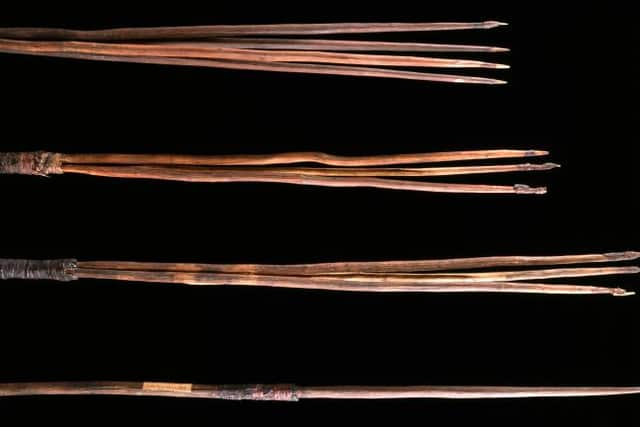Aboriginal spears taken by Lieutenant James Cook to be returned to Australia - 250 years later
and live on Freeview channel 276
A collection of Aboriginal spears taken by Captain James Cook during an 18th century expedition are to be returned to Australia. It is thought around 40 spears were taken in around 1770.
Cook recorded 40 spears were removed from the camps of Aboriginal people living at Botany Bay in April 1770. Lord Sandwich of the British Admiralty presented the four spears to Trinity College Cambridge soon after James Cook returned to England and they have been part of the collection since 1771.
Advertisement
Hide AdAdvertisement
Hide AdSince 1914 the four spears have been cared for by the Museum of Archaeology and Anthropology (MAA). The four spears are all that remain of the original 40 spears collected.
A formal request for the return of the spears was made by the La Perouse Local Aboriginal Land Council in December 2022. The spears will be permanently repatriated with the assistance of the Australian Institute of Aboriginal and Torres Strait Islander Studies (AIATSIS).
La Perouse Local Aboriginal Land Council chairperson, Noeleen Timbery, announced the spears would be “preserved for future generations”. She said: “We are proud to have worked with Cambridge’s Trinity College and the Museum of Archaeology and Anthropology to transfer the ownership of these enormously significant artefacts to the La Perouse Aboriginal community. They are an important connection to our past, our traditions and cultural practices, and to our ancestors. With assistance from the National Museum of Australia and AIATSIS we will ensure these objects are preserved for our future generations and for all Australians.
"Our Elders have worked for many years to see their ownership transferred to the traditional owners of Botany Bay. Many of the families within the La Perouse Aboriginal community are descended from those who were present during the eight days the Endeavour was anchored in Kamay in 1770.”
Advertisement
Hide AdAdvertisement
Hide AdProfessor Nicholas Thomas, Director of the Museum of Archaeology and Anthropology, said he was honoured to have worked with the Kamay community to repatriate the spears.


“It has been immensely rewarding to work with the La Perouse community to research these artefacts and we look forward to extending the partnership into the future,” he said.
"The spears are exceptionally significant. They are the first artefacts collected by any European from any part of Australia, that remain extant and documented. They reflect the beginnings of a history of misunderstanding and conflict. Their significance will be powerfully enhanced through return to the country."
Comment Guidelines
National World encourages reader discussion on our stories. User feedback, insights and back-and-forth exchanges add a rich layer of context to reporting. Please review our Community Guidelines before commenting.
